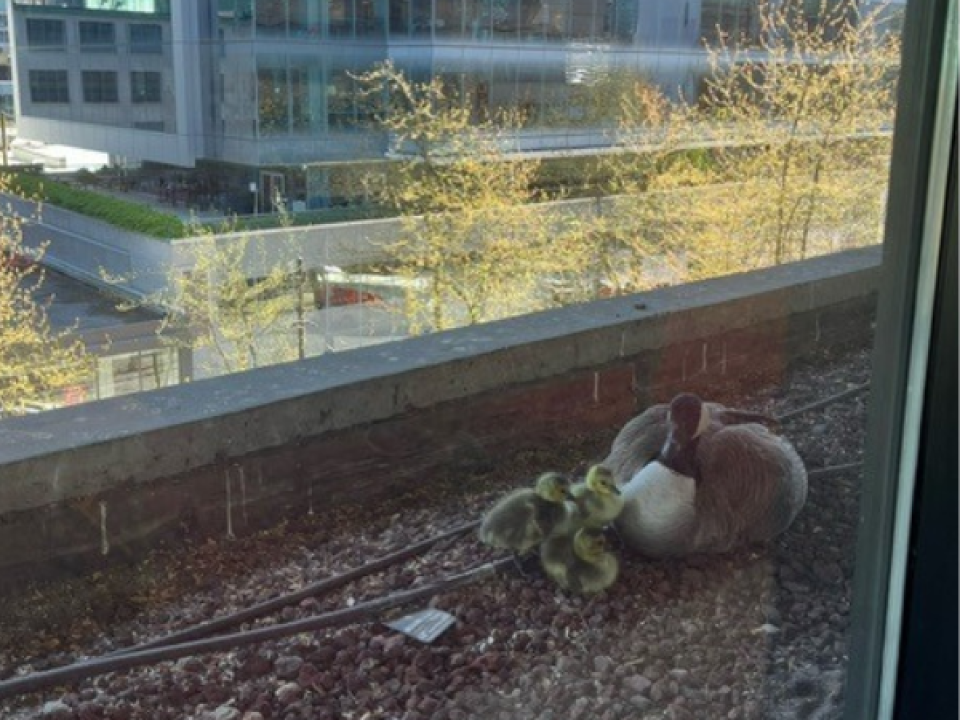Goose nesting season is well underway, and the first goslings have hatched. The Wildlife Rescue Helpline has already received more than 60 reports of urban nesting waterfowl this spring.
Nesting season for Canada geese typically lasts from mid-winter until early spring. Geese tend to nest near water in areas that are slightly elevated. With urbanization and a lack of available natural nesting sites, these birds often nest on building rooftops or balconies.
High-rise nesting can make for risky situations. Adult geese’s beaks are not adapted to hold their goslings and carry them around. Instead, goslings instinctively follow their parents wherever they go. With their nests being so high up, the babies need to make the jump to follow their parents to the nearest water source. Goslings can safely jump two storeys onto pavement and four onto grass or other soft substrate. Jumping from anything higher could hurt them significantly, considering the young animals can’t fly yet.
If you encounter a goose nest on top of a building and it seems unsafe, it’s important to take photos of the nest and the surrounding area. The next step is to send the photos, along with the building manager’s contact info, to the Wildlife Rescue Helpline at [email protected] or 604-526-7275 to help assess the situation.
If deemed required, this is where the Wildlife Rescue team comes in. This team of dedicated volunteers is equipped to safely contain and relocate these families to prevent casualties caused by urbanization. Last year alone, they were able to rescue close to 700 animals and bring them to ground level safely.
Canada geese mate for life and will return to the same location to nest year after year. To prevent geese from nesting on your balcony or roof, you can plant shrubs and trees. The birds like to nest in open areas so they can see predators approaching.
Additionally, mounting scare balloons or kites so they move in the wind to emulate a predator can help ensure the geese choose another place to nest. Moving them around every once in a while will make them more effective. Inflatable scarecrows, flagging, mylar tape, or garbage bags attached to stakes can have a similar impact.
For this to be successful, these items need to be in place well before goose nesting starts. Canada Geese are protected under the Migratory Birds Convention Act. This makes it illegal to disturb or remove a nest without a permit. Once they have a nest with eggs it is too late to scare them off.
If you encounter eggs or goslings without parents and suspect that they are orphaned or injured, please reach out to the Wildlife Rescue Helpline for assistance and guidance.
This article was written by Elin Molenaar, the communications assistant at Wildlife Rescue Association.




